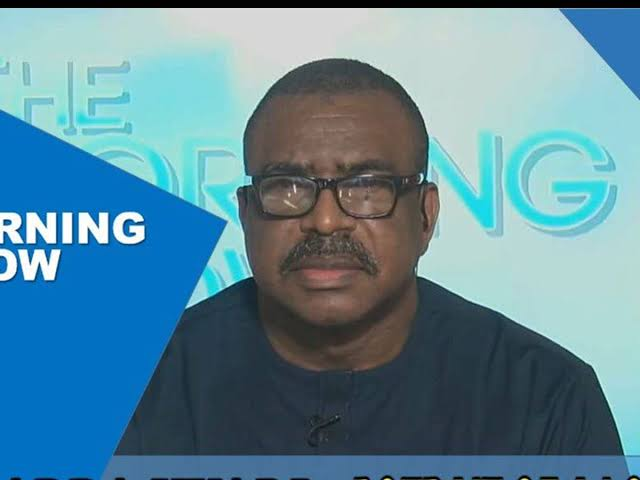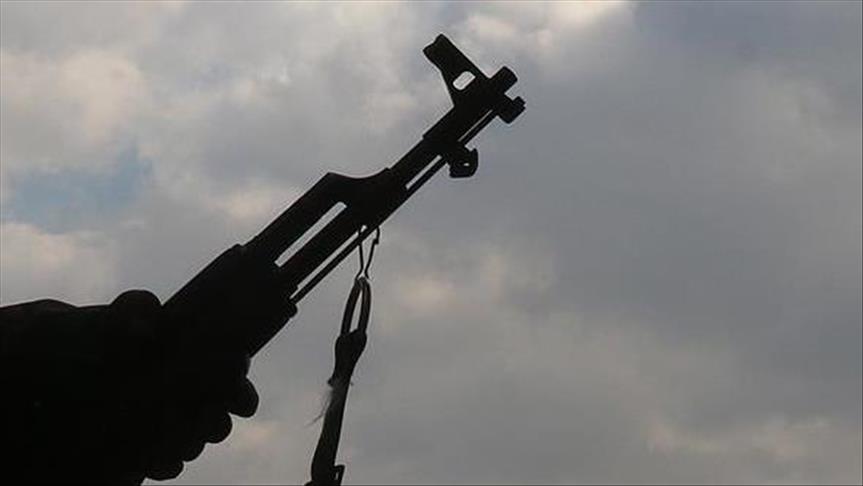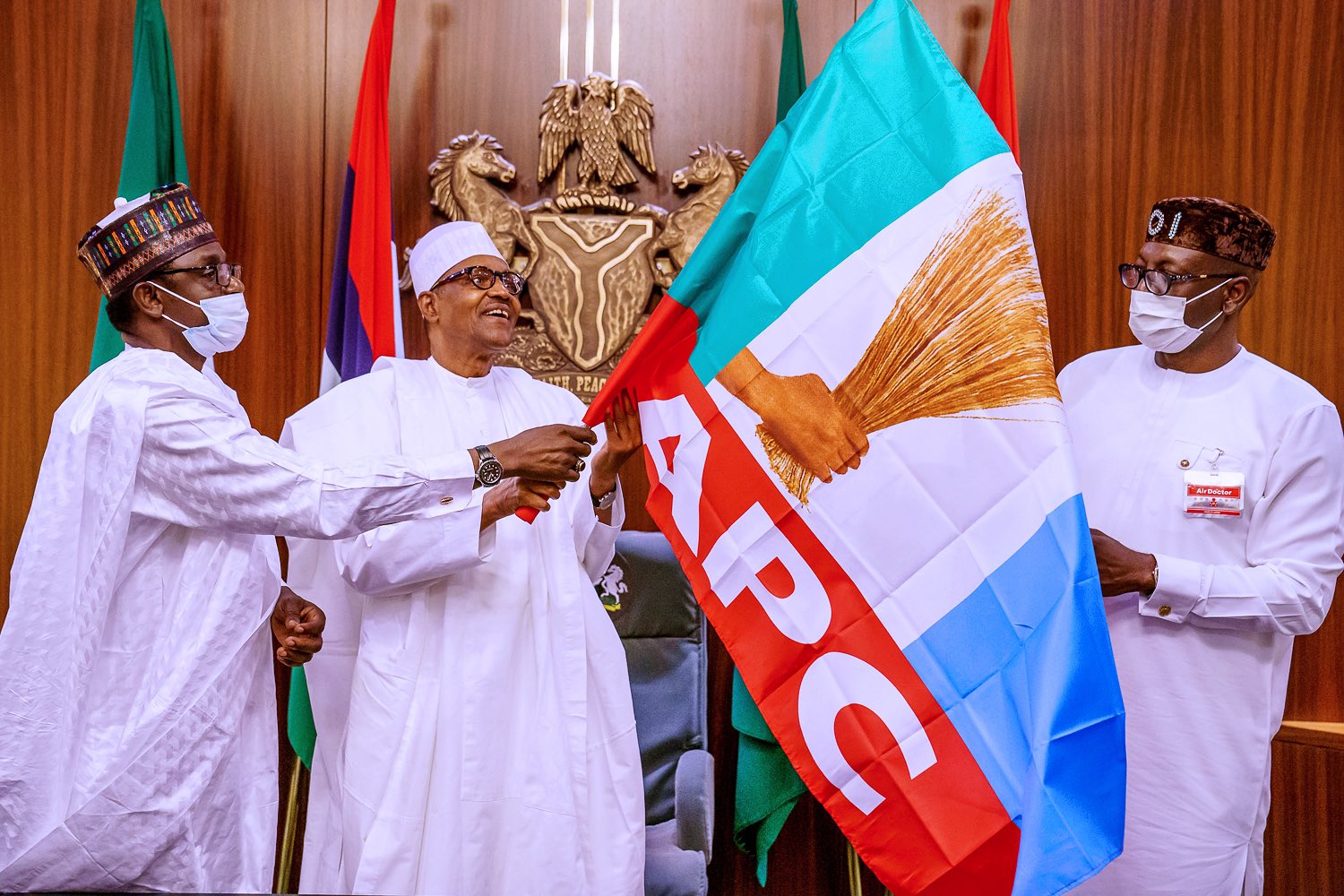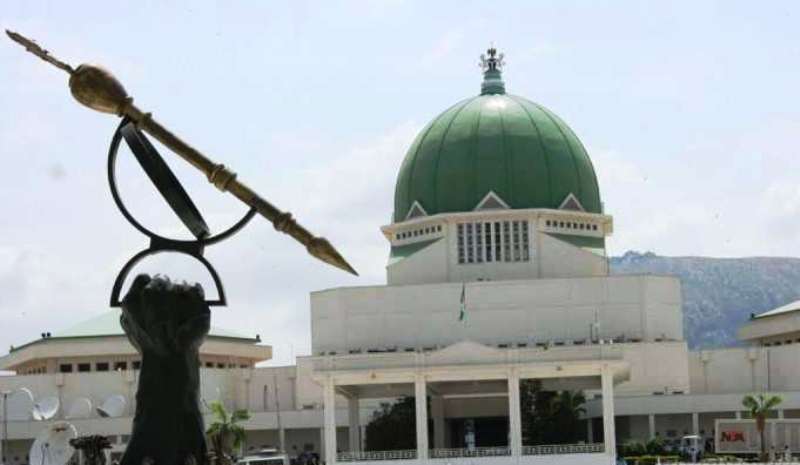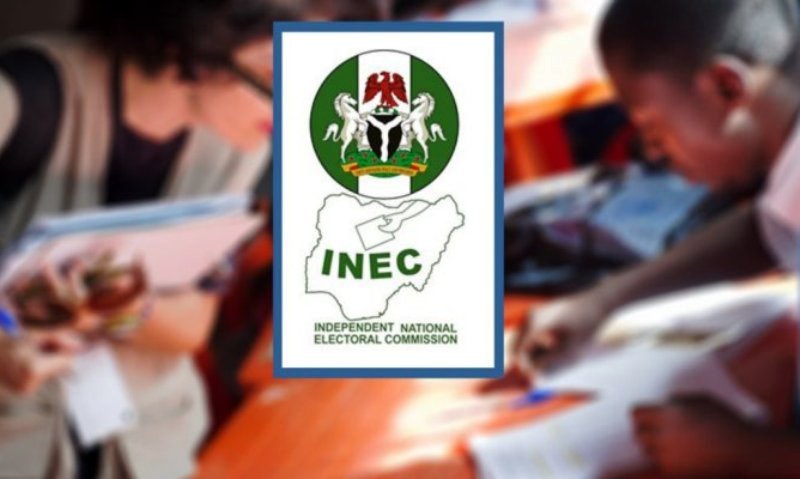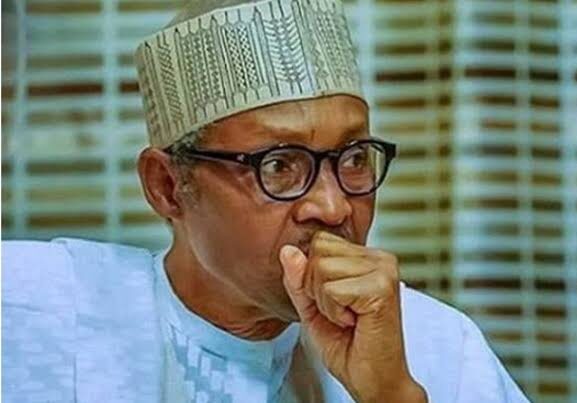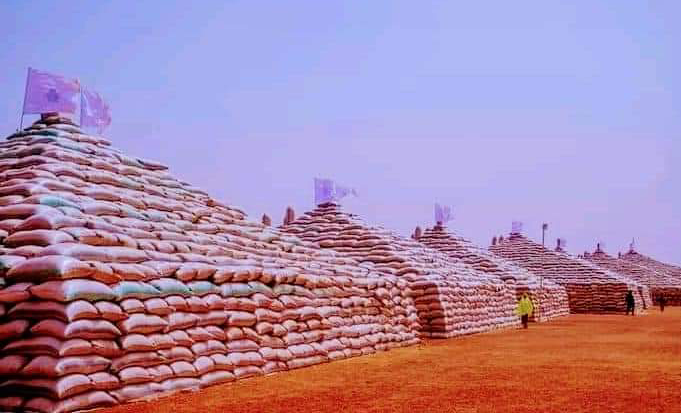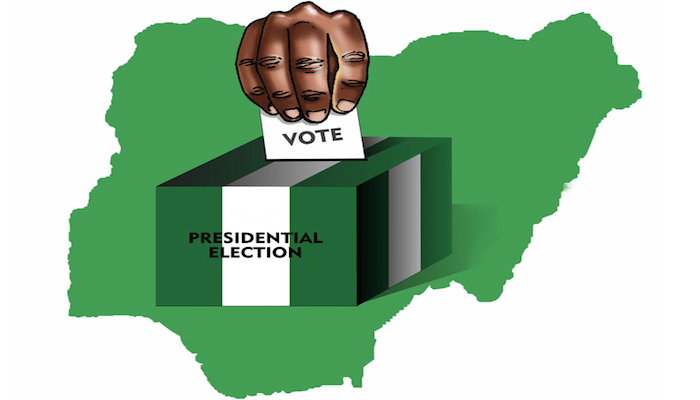By Magnus Onyibe
I love Nigeria, I no go lie is a lyric of a popular Nigerian song by the same title written by Wole Soyinka -Nobel laureate and Tunji Oyelana. And the song was sung in the good old days when the naira/dollar exchange rate was such that the naira commanded a higher exchange rate than the United States of America (USA) dollar.
The table below is how StatisSense — a financial intelligence advocacy outfit presented the rapid devaluation of the naira in the past 20 years; reflecting the pulling of the economy into the doldrums and by implication how the misery of Nigerians has increased exponentially as evidenced by the rapidly deteriorating standard of living.
The graphic display by StatisSense which has been trending in social media would make the jaws of even the most optimistic Nigerians drop in despondency.
Here we go:
“The Value of ₦1m over 40 years (1981 – 2021):
1981: ₦1m = $1,570,105
1991: ₦1m = $102,517
2001: ₦1m = $8,814
2011: ₦1m = $6,382
2021: ₦1m = $2,421”
If the erosion of the value of our national currency as highlighted above does not gull you, the fact that queuing for days and nights for petrol has been a re-occurring decimal in Nigeria’s social-economic calculus would literarily give you a kick in the groin.
Since a fortnight ago when our country started experiencing the return of the dreaded struggle by the masses just to purchase petrol from retail stations, Nigerians have also been reminded of the stressful experience, via a video that has gone viral depicting Nigerians as far back as 1974 struggling to purchase the essential petrol for their vehicles that would enable them have the mobility to get on with their daily chores of plying their trade and earning their living as blue or white-collar workers. What the video exposes is that although there has been a lot of motions and actions (massive commitment of funds in turnaround maintenance of refineries by the authorities) no real progress has been made in relieving the masses of the terrible ordeal that they faced in the process of obtaining petrol.
In light of the nostalgic and positive memory of the high quality of life in Nigeria in the days of yore which is before the 1970s when things went awry following the 1966 coup, a counter coup six months after, and the unfortunate civil war that lasted till 1970, it is not unexpected that, the song, ‘l love Nigeria, l no go lie. Na inside am l go live and die’ would be like a national anthem.
Little wonder, it became a sing-song issuing from the lips of many a Nigerian.
Indeed, it was a sign of the times.
Which is why any attempt to sing about Nigeria now, would be melancholic.
And we need not search long or hard to find a song that reflects the state of affairs commencing from the time that crushing hard times started threatening to asphyxiate Nigerian masses in the early 1970s.
A song by Idris Abdulkareem, a popular musician aptly describes the current state of affairs in Nigeria that is now in a Hobbesian state of nature -which can basically be characterized as jungle life.
The lyrics which is quite graphic goes thus:
‘Nigeria jaga, jaga. Everything scatter, scatter. Gun shots in mi street , gbosa, gbosa’.
It is such an irony that when the young musician sang the song a couple of decades ago, things were not this bad in our country as evidenced by the insecurity of lives and properties of multiple dimensions-religious insurgencies, herdsmen/farmers conflicts, and banditry as well as kidnapping for ransom at an unprecedented scale, currently ravaging our country
But that did not deter then president Olusegun Obasanjo, OBJ from having an altercation with the young musician who he challenged when he categorically rebuked him by stating that Nigeria is not jaga, jaga. As some Nigerians would recall, that happened after the song of lamentation was sang at a public event in which the then-president was in attendance. The song was a sort of affirmation of another song by a Nigerian artist that goes by the name, Ras Kimono, who is now late. It is titled:
“Under pressure, Nigerians under pressure. No money for me pocket, no food, for my belly,” he wailed.
The song of sorrow that predates all of the foregoing ones is: ‘suffering and smiling’ by late Fela Kuti- the king of rebel music. I need not dwell further on Fela’s string of protest music which abounds and is popular or common enough for me to assume that the point has been made. Although some of our current youthful musicians have made music denouncing the cold treatment from the Nigerian police leading to #Ensars street protests in October 2020,(such as:…meet me in Ozumba Mbadiwe , which is the site of Lekki toll gate where the alleged shooting of protesting youths by the army happened ) the songs have not been widely propagated as much as Fela Kuti’s scathing condemnation of military brutality in his hit songs titled: ”Zombie”, or “Sorrow, Tears and Blood” amongst others.
Owing to the constrictions in our society as evidenced by the rampant violation of civil liberties by authorities, as evidenced by the fact that #ENSARS Protesters waving Nigerian flags and singing the national anthem were allegedly shot at by law enforcement agencies in October 2020, I can not help but wonder if the incumbent president, Muhammadu Buhari would like ex-president, Obasanjo who blasted an artist for singing Nigeria jaga, jaga, lambast any musician that sings protest songs reflecting the unprecedented level of misery that is currently threatening to snuff life out of many a Nigerian.
Now, dear readers, if at this juncture, you are wondering if this article is not about musicians, as such, the title may be deceptive, you are justified in your bewilderment.
Without further ado, let me hasten to explain why l embarked on the voyage into the land of music in the preamble.
The reason is to soften the harsh effect of the picture of the current reality in our beloved country which l am about to share with you by first of all recalling the good times, while gradually introducing the current horrendous state of life in our nation and alarming criminality in our beloved country.
According to experts,if you want to understand the artistic zeitgeist of a particular era, you only have to look at the politics, movies, fashion, and music of that time. So the highlighted songs are reflections of the drudgery in our society.
Believe it or not, the seeming pall of darkness which has simply engulfed our beloved country is a fallout of the fact that for too long, Nigeria has been in the vice grip of terrible and unpatriotic leaders or those without positive vision of how to lead our country into prosperity . Hence our country has failed to rise above its initial challenges as reflected by the fact that in nearly 50 years, (a period of nearly half a century) the malaise of queuing up for days on end in petrol stations just to purchase the commodity has as an albatross remained with us unchanged and unceasing.
Expressed metaphorically, the return of petrol queues in Nigeria which is a reminder of the experience that goes as far back as 1974, is like a child that was bedwetting at infancy that has continued to bed-wet at nearly age 50.
Is that not a crying shameful monument to our memory as a nation?
As if taking absurdity to a new dimension, the federal government has just made a massive provision of N3 trillion for the funding of petroleum subsidy in the 2023 budget. That is irrespective of the fact that about $2 billion could have been invested in building a sizable new refinery from scratch as the Chinese recently did in the Niger Republic in a reasonably short span of time.
As proof that the assertion above is not mere fantasy as some apparatchiks of government are wont to make the masses believe, Aliko Dangote is in the process of completing, in Lekki Free Trade Zone, near Lagos, the construction of a multi-billion dollars complex (estimated at $19 billion) comprising of Petrol refining (650,000 bpd) and a chemical as well as fertilizer blending facilities in a period of not more than five years. It may be recalled that the richest man in Africa first broke the news in 2016 before activities to actualize the vision commenced in the following year 2017.
And that is within the watch of the current leadership in Aso Rock villa.
To put things in context, let us keep in mind that Nigeria is believed in some quarters to have spent at least $30 billion importing fuel in the last 15 years (approximately 18 trillion naira) which is much more than the $19 trillion that Dangote has invested in his massive facility that is poised to reverse the debilitating experience of practically fighting to obtain petrol in retail stations in the past 50 years.
Meanwhile, after a galaxy of experts have averred that about $2 billion can build a Refinery in Nigeria from the scratch, similar amounts have been applied, on multiple occasions revamping existing refineries that are in reality, comatose.
The woes that make Nigeria a massive crime scene do not end there.
Unlike neighboring Niger republic which boasts of a new state-of-the-art petrol refinery built by the Chinese in a record time, our leaders have been unable to build a new refinery and the existing ones have been largely barren, (infinitesimal production) even when an estimated whopping sum of N65 billion is reportedly being expended as staff emoluments annually for Kaduna refinery alone.
Worse still, although Nigeria is the world’s 6th largest oil/gas producer , with the country being a massive crime scene, it is unable to meet its OPEC allocated production quota of two (2) million barrels per day. This may in part be due to the crime of stealing crude oil from the pipelines in volumes reportedly as much as 450,000 barrels daily. Tony Elumelu, chairman of Heirs Holdings recently valued the quantity of crude stolen in the niger delta to be at as much as $4 billion annually.
Cognizant of the narrative above, no matter the optics applied, be it with the opposition or ruling party lenses, our beloved country can’t escape being classified as a massive crime scene.
And the rot afflicting our country is not confined to the financial and economic spheres of life.
The doom and gloom spread into even the health care and life expectancy realms. And a narrative of my tragic and traumatic personal experience below is the justification for the above assertionFollowing the sudden passage of my 17-year-old daughter Kikaose Ebiye -Onyibe, a second-year law undergraduate attending the University of Birmingham, UK after a badly handled surgery for appendicitis at Lagoon hospital in Bourdilon road, Ikoyi, Lagos on April 12, 2017; based on my morbid experience, I wrote an article titled: “Nigeria Now Looks Like An ICU”.
The piece went beyond the shambolic health care system in our country to which l lost my precious daughter, as it was a reflection of the state of anomie that our country had descended at that time.
That was evidenced by the harvest of deaths nationwide, but particularly in the Benue Trough in the middle belt of Nigeria where herdsmen now interchangeable for bandits and terrorists were engaging in an orgy of death or a killing spree. The crime situation was so dire that hopeless and hapless families buried victims sometimes running into several dozens at a time and in a single day.
Back in those days, the crisis of Insecurity of lives and properties was so outrageous that even as l was mourning the loss of Kikaose who tragically passed away in a supposed first-class health facility smack in the heart of Ikoyi which had no medical equipment as simple as a ventilator that could have saved my daughter’s life by enabling her to breathe while her vital organs damaged by the toxins oozing out of her ruptured appendix could heal via treatment with antibiotics; l could not help but be united in grief with the families who also lost loved ones to the marauders posing as herdsmen that were terrorizing fellow Nigerians with impunity at about the same time that l was grieving.
For those interested in learning a lesson or two from my tragic experience in a Nigerian hospital and how to cope with the loss of a loved one, the details can be found in my book written in Kikaose’s memory titled: “Beyond Loss And Grief. The Story Of Kikaose Ebiye-Onyibe.”
The apparent worthlessness of lives in Nigeria due to perverse leadership is one of the many factors that justify the tagging of Nigeria as a massive crime scene.
Below is how l tried to prick the conscience of our leaders in Aso Rock Villa and National Assembly, NASS into taking more far-reaching actions to stem the high tide of insecurity of lives and properties of Nigerians which had degenerated from being confined to the north to becoming a pan-Nigeria crisis as if it was imperative that the mindless criminality is democratized.
“In ICUs, practically everybody you are likely to find would be in oxygen masks, dialysis machines, and in spasms or death throes.
If a patient survives ICU and proceeds to none emergency sections of the hospital, he or she is likely to live long enough to tell the story.”
I strove further to make my case by stressing the difference between president Buhari’s exaltation in his first democracy day speech and the reality:
“What l glean from president Muhammadu Buhari’s democracy day speech last May 29, 2016, marking his first year in office as president of Nigeria, is a message of hope, with a further call for patience by long-suffering Nigerians and a promise that their fortune would soon change for the better.
However, the reality is that the living condition of Nigerians across the spectrum right now, fits the description of an ICU because life has been, to say the least, brutish, traumatic, and tragic, such that the average Nigerian does not know if he can survive till the next day, how much less another one year, if existing fundamental structural imbalances are not re-engineered.”
I then drove my point home by highlighting the following prevailing circumstances that justify labeling our dear country with the toga of an ICU and which incidentally are still persistent over six years after the article was published.
“Below are five prevailing circumstances that underscore my characterization of Nigeria as an ICU.
_(1) Undoubtedly, the president has done a very commendable job of prying out from the sticky fingers of looters, Nigeria’s wealth – although the promise to reveal the sum and name culprits remain unkept.
However, the exercise did not happen without taking its toll on the economy and the collateral damage can be equated to the calamitous consequences of chasing a bull into a China shop.
Recent reports in the media monitoring a tier-one bank foreign exchange, fx allocation from CBN indicates that the largest amount of fx sold by the bank last week is to foreign conglomerates who are pulling out their funds owing to the uncertainties in Nigeria.
Apart from portfolio and equity firms that have retreated from Nigeria in the past few months, foreign airlines which are unable to repatriate their funds are currently in the forefront of businesses deserting Nigeria.
With the astronomical exchange rates, factories closing down, biting unemployment, galloping inflation, and a lot of people are in distress.
With the foregoing indices, Nigerians can be said to be in ICU and are likely to remain there for much longer than they might have imagined as pervasive poverty continues to reign supreme.
(2) As tumultuous as the anti-corruption war has been, stepping down Boko Haram insurgency alert level from code red when it appeared as if there were an equal number of people worshiping inside churches and mosques, as there were security personnel guarding the houses of worship, has been the most notable accomplishment of president Buhari, in the past one year.
Compared to the past, the dreaded terrorist group can now be safely said to be struggling to get noticed through the occasional detonation of improvised explosive devices, IEDs here and there and once in a while.
That is a welcome development for Nigerians in the northeast where the number of Internally Displaced People, IDPs, estimated to be in millions, are now returning to their homes.
As parents who have lost children are consigned to mourning the loss of their loved ones and the young lads who are now orphaned are left to care for themselves, returning home is not such a great respite to the hapless victims, so they remain in ICU as they try to cobble their lives together.
(3) Although the horrendous killings in northeast Nigeria which earned Boko Haram the reputation of being the most brutal terror group in the world — worst than ISIS, Al Qaeda, and Taliban — has abated, the orgy of killings by the rampaging Fulani herdsmen of children, women, and men is the new face of terrorism.
From Agatu in Benue state where the whole town was burnt down with throats slit; kidnap and near assassination of a former presidential candidate, Olu Falae in Ogun state; brazen attacks on farmers and monarchs in delta state to the brutal massacre of indigenes and the sacking of Nimbo town in Enugu state with homes razed and humans mauled down by the so-called cattle rustlers, terrorism has now migrated from the northeast, and it is now alive and walking freely in the uttermost parts of southern Nigeria and therefore the nation’s new sore point.
In that regard, the storm of bad news did not end with the slow down of terrorism in the northeast, as the Ak47 assault rifle-wielding herdsmen attacking the middle belt, southwest and now southeast Nigeria, bear the imprint of a retreating Boko Haram terrorist groups from the northeast, melting into the cattle-herding system and surreptitiously migrating to the south with their regular trademark of sorrow tears and blood, to borrow a phrase from the late Afrobeat maestro, Fela Kuti.
What this implies is that, despite the near subjugation of Boko Haram in the northeast, Nigerians in the southern part, have now joined the number of people in ICU owing to terrorism franchised to the so-called herdsmen who are now spreading it like wildfire nationwide.
The havoc of the herdsmen in southern Nigeria without anticipatory strategy by security authorities to nip it in the bud is another evidence of the lack of ability and capacity by our security apparatus to anticipate and prevent a likely fall out of a war in one zone spreading to another. Even as private individuals or groups, we must help the military to secure Nigeria. Vigilante groups which were recently re-introduced are good but there is also a need for enhancement of intelligence gathering activities to aid the military. Time was when the Sea Dogs, a fraternity founded by Wole Soyinka led an investigation on the operation of toll gates in Nigeria that exposed the corruption involved and what needed to be done to curb it.
We don’t need Americans, the French and British military now helping us to defeat Boko Haram to also teach us that the most likely fall out of the defeat of the terrorist group would dispersal of terrorists nationwide which would equally be catastrophic if we don’t guard against it.
In my reckoning, it is partly the long-drawn religious wars in Somalia, Chad and recently Libya which compelled the migration of war-displaced people from places like Chad into Borno state in particular and northeast Nigeria in general, that laid the foundation for the terrorist malaise that Nigeria has suffered in the past six, 6 years.
Incidentally, as they were fleeing the war zones, most of the war-induced immigrants took their arms with them and continued to harbor their extreme religious beliefs as well.
Over the years, the proliferation of small arms continued and rebellious religious beliefs festered until they coalesced into the lethal terrorist brand now known as Boko Haram in Nigeria.
Based on experiences garnered from other jurisdictions, the United Nations, UN was aware of the probable consequential effects of spillover of war atrocities to neighboring countries, so it established an agency to mitigate small arms proliferation.
It is the neglect of the UN agency to do the job assigned that manifested as Boko Haram in Nigeria.
Similarly, Nigerian security authorities lack the foresight in predicting that as Boko Haram is being flushed out from Sambisa forest, their erstwhile home base, elements of the terrorist group would disperse by melting into society and given their lifestyle, disguising as nomadic herdsmen is the most unsuspecting and undetectable entry point into the larger society.
Since the existence of Nigeria as a country, Fulani cattle herdsmen have traveled from Sokoto to Enugu with their animals’ wares seeking pasture without molestation and they never carried arms beyond the traditional bows and arrows.
In fact, as a young correspondent in Nigerian television authority, NTA about twenty years ago, in the cause of trying to establish the unity and blending of various Nigerian tribes through trade, l followed the cattle trail from Sokoto to Enugu.
In the course of that journey, I met an adult Fulani cattle rearer/trader whose parents had migrated to Enugu and he was born and brought up there.
He spoke the Igbo language flawlessly and he was very proud of his Fulani heritage as he was full of encomiums for Enugu, his adopted home where he was fully integrated with his own family which he had started in Enugu. In today’s Nigeria, the chance for such cultural integration seems to have been lost permanently.
Today, Nimbo people of Anambra state who have suffered the horrific misfortune are symbolic of the Igbos in ICU as a result of the mayhem unleashed on them by their guests of many years.
(4) As if the tales of woe have been structured to be unending in Nigeria through mutation of conflicts into different forms, the people of the oil-rich Niger Delta, particularly Gbaramatu Kingdom in Delta state are now under siege following recent critical oil/gas national assets vandalism.
With the invasion by the Nigerian military through aerial and sea bombardments, in the bid to fish out the perpetrators of the damage to oil/ gas infrastructure, casualties have been much and families have been displaced as most of the indigenes have fled into the forests.
Invariably, a new crop of IDPs, like the ones that are currently being resettled in Boko haram ravaged northeast Nigeria, is about to build up in south-south Nigeria.
So living in starvation and fleeing from the threat of death from the military, Niger delta indigenes who are the goose that lay the golden eggs-90% of Nigeria’s fx comes from oil/gas export-are now slipping into the ICU category.
(5) Similar circumstances apply to the people of the southeastern part of Nigeria engaging in the struggle for self-rule.
Agitating for secession from Nigeria ostensibly owing to marginalization, some Igbos, under the auspices of Movement For Actualization of The Sovereign State of Biafra, MASSOB and Independent People Of Biafra, IPOB have been vociferously making their case.
The operator of the unlicensed Radio Biafra being used to mobilize support for the cause, Nnamdi Kanu has been detained by govt authorities for several months without bail and the apparent unconstitutionality of the measure along with their determination to mark the day the state of Biafra was declared, are fueling bloody clashes between the self-rule agitators and govt security agencies with avoidable human fatalities on both sides._
In the light of the sad circumstances described above, ethnic nationality agitators in the southeast are in ICU for daring to exercise their right to express their opinion and desire for self-rule.
Considering that freedom of expression is one of the fundamental and core values of democracy, the military may have a lot of explaining to do, which is why l would suggest they also arm themselves with video cameras so that they can have evidence to prove that the protesters were armed and thus compelled the application of deadly force to disperse them. A claim that protesters vehemently dispute. In the absence of such evidence, the claim that protesters were shot at by the military in self-defense would be hollow.
Almost thirty years after the Tiananmen Square massacre of pro-democracy protesters by the Chinese military, the communist govt, is still trying to come to terms with the ruthlessness and recklessness with which a protest by unarmed civilians was quelled.
By the same token, the German soldiers who perpetrated the Jewish genocide about 100 years ago are still being held accountable for the crime.
If any keen observer of developments in Nigeria, that is less charitable should conclude that our dear country is now like a war theatre and Nigerians are in ICU where war casualties usually end up, that judgment may not be wrong.”
Beyond being in an ICU, and to be fair to the authorities,l concluded the analysis by highlighting the fact that the leadership of our country is also facing other existential threats which have stretched the ability and capacity of the law enforcement agencies.
“Of course, Nigeria can be said to be at war on three and a half fronts:(1) with Boko Haram in the northeast, (2) with militants in Niger Delta creeks, and (3) with MASSOB/IPOB in the southeast plus battle against Fulani herdsmen whom President Buhari recently gave security authorities marching order to rein in although the minister of interior, General Abdulrahman Dambazau insists it remains a police action.
This is in spite of the fact that statistics from the Global Terrorism Index in 2015 indicate that Fulani militants killed 1,229 people in 2014 up from 63 in 2013.
When the dramatic increase from 63 to 1,229 in one year is extrapolated, and considering the recent spate of killings in Benue, Ogun, Ekiti, Delta, and Enugu states, the number must have increased to at least 5,000 innocent Nigerians by now.
If such massive decimation of human lives don’t deserve military action to curtail, how can the use of deadly military force against apparently unarmed Biafran state protesters be justified?”
Is it not remarkable that the above article that l just reproduced in this piece was published on June 6, 2016? That is about 6 years ago and barely one year after President Buhari took the mantle of leadership in Aso Rock Villa.
It is disheartening that the atmosphere of insecurity that earned Nigeria the ignoble tag of ICU 6 years ago has not changed for the better and in any significant manner. Rather, the situation has even worsened.
Now, let us pivot from the ignoble and scandalous state of life expectancy in Nigeria owing to poorly resourced health care facilities and criminality that have now spread like cancer nationwide to the dimension of financial crimes that are also bedeviling our nation.
Even if we decide to discountenance the horrific experience of our youths engaged in the gig economy (working independently for short term commitment )in the hands of the despotic police unit known as SARS (now disbanded) whose penchant for killing innocent youths and stripping them of their wealth on unproven allegations of engaging in advance fee fraud, (also known as 419) culminating in the bloody street protests by youths tagged #Endsars in October 2020, our country still fits into the mold of a massive crime scene.
The violence sparked by the resistance of the youths practically crippled the country for a couple of weeks. The aftermath reverberated to the extent that it became a source of a major spat between the Cable News Network, CNN which reported that several youths were killed when the Nigerian army allegedly opened fire on the protesting youths that had gathered at Lekki toll gate in defiance of the curfew aimed at putting an end to the riots to which the protests had degenerated.
That unfortunate incident, no matter the prism applied in its assessment is another blithe and justification for branding Nigeria as a massive crime scene.
Also, think of the international dimension which Nigeria as a massive crime scene has morphed into by focusing on the current Huspuppi and Abba Kyari criminality conundrum.
While Huspuppi, (whose real name is Ramon Abbas) the confessed serial internet fraudster has been extradited from his location in Dubai, United Arab Emirates, UAE to the USA to face the consequences, his alleged accomplice, DSP Abba Kyari, a highly decorated ‘super cop’ is in the process of being similarly dispatched to the USA to defend himself or face the music.
Shockingly, and as if to further affirm that our country has become a theatre of the absurd, the same DCP Abba Kyari has been implicated in the stealing and reselling of seized narcotics by the Nigerian Drug Law Enforcement Agency, NDLEA.
Not a few Nigerians believe that there are many more Hushpuppis engaging in internet fraud in our society who are yet to be apprehended and ‘super cops’ like Abba Kyari that have gone rogue in our law enforcement agencies that need to be fished out.
If such despicable activities highlighted above do not make Nigeria a massive crime scene, what could?
The United Nations Educational and Scientific Fund, UNICEF reckons in its recent report that over 10.5 million Nigerian children are out of school due to conflicts ranging from religious insurgency, herdsmen/farmers conflicts, and separatist agitations ravaging the country. Ex-president Obasanjo at the Murtala Mohamed Memorial lecture held in Abuja on Tuesday, February 21 declared that the number of out-of-school children is Fifteen (15) million. He then posited that such young school dropouts today are likely to swell the ranks of religious insurgents, bandits, and outlaws generally in the next 5-10 years if they remain uneducated and unemployable.
And l concur.
Chidi Anselm Odinkalu, said it best in 2014, when as chairman of the governing council of the Nigerian Human Rights Commission while addressing Women For Peace, an NGO pursuing the release of Chibok schoolgirls stolen by the notorious religious insurgents, Boko Haram, underscored the significance of recovering the girls:
“These Chibok girls are young people. As our next generation, they are the guarantors of the continuity of our race and country. They’re, therefore, not just “our” girls; they’re our future. If we cannot protect our future, then we fail ourselves and our ancestors.”
After the Chibok girls’ ordeal, many more school boys and girls have been seized from their hostels and dormitories by bandits, forcing hordes of schools in the north to (in the apprehension of the outlaws) shut down to avoid being the next victims. Thankfully, most of the Kidnapped school kids have presently been freed and the epidemic of stealing children from school has abated.
Be that as it may, the situation in our country that categorizes it as a massive crime zone even gets more grim by the day.
Instead of sharing with Nigerians the number of children being enrolled in schools to show that UNlCEF’s concern about the alarming number of out of school children especially in the north is being addressed, the Kaduna state government periodically reports a staggering record of people in the state that have died owing to conflicts arising from the activities of incorrigible intractable religious insurgents or bandits as the authorities have chosen to tag the nefarious ambassadors. In the course of the weekly ministerial press briefing organized by the Presidential Communications Team at the presidential villa, Abuja last Thursday (February 24) governor Nasir El-Rufai revealed that there has been a deterioration in the rate of insecurity of life and properties in Kaduna state.
The governor who is the state’s chief security officer pointed out that, while 937 were killed and 1,972 kidnapped by bandits in the state in 2020, a total of 1,192 were killed and 3,348 were kidnapped in 2021. The statistics indicate that about 200 more lives were lost in Kaduna in 2021 than in 2020.
The wanton wastage of lives by the outlaws in Kaduna state is just a fraction of the death toll stemming from a mixture of religious extremism and outright criminality that have enveloped our country in the past decade beginning with the kidnap of schoolgirls in Chibok, Borno state. If other state governors in the north were to report the death toll in their jurisdictions as governor Nasir El-Rufai of Kaduna state does, the numbers would be benumbing.
Given that our country is not officially at war, and such a huge number of souls are being lost on a daily basis, certainly, the nation can be described as a massive crime scene.
There is also the dimension of the financial crimes being perpetrated in most of the government agencies regarded as cash cows such as the NNPC, NDDC, NPA, NIMASA, and the likes which makes Nigeria a massive crime scene since those agencies have become a cesspit of corruption. For lack of space, I will not dwell on the fraud in NDDC, NPA, NIMASA which is stinking.
But I will concentrate on the monumental financial sleaze swirling around the NNPC which generates about 95% of Nigeria’s foreign exchange earnings and accounts for about 50% of government revenue.
The menace of crime in the economic sector being perpetrated against our country by local and international crime syndicates pushing Nigeria to its brinks also makes the nation a massive crime scene. In a revetting reporting by BusinessHallmark-an economic matters focused newspaper, the investigative reporter made the following revelation:
“Only recently, an oil trading company, Samano Sa De CV, wrote a letter to the Group Managing Director of the Nigerian National Petroleum Corporation, Mele Kyari, demanding a five percent reward for exposing the diversion and theft of 48 million barrels of crude oil.
At the current price of global crude oil which is $43 per barrel, (currently, the stolen oil is expected to be worth $2.06bn. The alleged theft is said to have taken place in 2015.”
Writing further, the BussinessHallmark reporter made the case that:
“Long seen and widely considered as the single most important cash cow in the land, the NNPC today is finding that it plainly has to reform or be reformed. While it has for long been used to calling the shots, it is now under immense pressure to explain itself. In the past few weeks, its top brass has been dragged to the National Assembly to provide explanations on the operations of the corporation. It also makes the case that:
“In one such appearance, the focus of inquiries was the drilling cost of crude with the corporation having to explain why its figures were above the global equivalent.
There have also been questions about the profitability of the corporation. Within the past weeks presumed audit documents were leaked to the public indicating that at least one of the refineries ostensibly being managed by the corporation, the Kaduna Refinery and Petrochemical Complex, KRPC may have expended as much as N65billion while at the same time posting zero revenues”
Somehow, the matter has now simmered with the protagonists taking the battle to the USA -a new frontier where they are, like a chameleon adorning a new identity with the aim to leverage US legal system to inflict lethal legal assault on Nigeria. But what gave such international crime syndicate the impetus to initiate such a nefarious activity in our clime? Considering that a similar scam involving PI&D, another international firm with a questionable record recently occurred in NNPC, our country can not justifiably deny that the atmosphere that fosters such criminality is prevailing here.
As the saying goes, there is no smoke without fire.
On top of all that mess, a whooping sum of N3 trillion has just been set aside in budget 2022 as subsidy for petrol.
And the authorities have not been able to ascertain the quantity of Premium Motor Spirit, PMS that motorists use on a daily basis-a figure that has been ranging between 33m in 2012 to the 66m liters per day currently being bandied around.
That our country is on the verge of becoming broke and about N3 trillion is being allocated in budget 2023 to fund consumption of petrol by motorists is befuddling and antithetical to rational thinking.
How many Nigerians own cars? Assuming N3 trillion is domiciled in federal mortgage bank to be offered as a loan/facility to the masses, can you imagine how many Nigerians would become first-time homeowners in the next few years? Consider the trickle-down effect in terms of employment for construction workers and ancillary services.
Without engaging in critical thinking, our political leaders have elected to literarily burn N3 trillion by channeling it into the phantom called petrol subsidy.
On Monday, February 6, 2022, the IMF projected that Nigeria’s debt service-to-revenue ratio would jump to 92 percent in 2022 from 76 percent in 2021.
How flabbergastingly absurd?
Allow me to break it down for easy assimilation.
Can readers imagine what would become of a man who spends 92% of his income servicing debt? How does he meet other essential needs such as a roof over his head, feeding, and clothing himself as well as taking care of his medical bills with only 8% of his income?
That is assuming that he does not have a wife and children to cater for.
The forgoing is a simple analogy of the dire straights in which our country is currently caught up.
Against the backdrop of the gargantuan burden that the incoming president in 2023 would inherit and grapple with, is it not confounding that so many Nigerians are jostling to succeed president Buhari next year? That much is captured in my new book: “Becoming President Of Nigeria” (with the foreword written by professor Bolaji Akinyemi) that is currently being printed.
By the time the political parties’ conventions for picking presidential candidates are held by both the ruling and main opposition parties in the coming months, the economic management capacity and ability of the candidates must be a core value that voters would look out for in the person who they would choose to lead them as president out of the tempestuous socioeconomic waters in which our ship of state is presently sailing.
Since the next president already has his job cut out for him, it is perhaps why the best man for the job of president of Nigeria in 2023 must be someone who can read a balance sheet.
In the light of the above assertion, amongst the motley crowd of presidential hopefuls, a couple of the candidates are already standing out in both the ruling APC and the main opposition party, PDP.
With, the Independent National Election Commission, INEC releasing the guidelines and timetable for the 2023 general elections last Saturday, 26/2/22, which is commendably only a day after President Buhari assented to the much awaited electoral act 2022 on Friday, 25/2/22, the dice is now cast for politicking to commence in earnest as the electoral reforms that would make the process less rancorous, dangerous and unattractive to men and women of goodwill, have been instituted.
And as the saying goes, the ball is now in the court of Nigerians to pick and choose the messiah that would rescue and lead them out of the massive crime scene that our beloved country has become lately.
Magnus Onyibe, an entrepreneur, public policy analyst, author, development strategist, alumnus of Fletcher School of Law and Diplomacy, Tufts University, Massachusetts, USA, and a former commissioner in Delta State government, sent this piece from Lagos.
